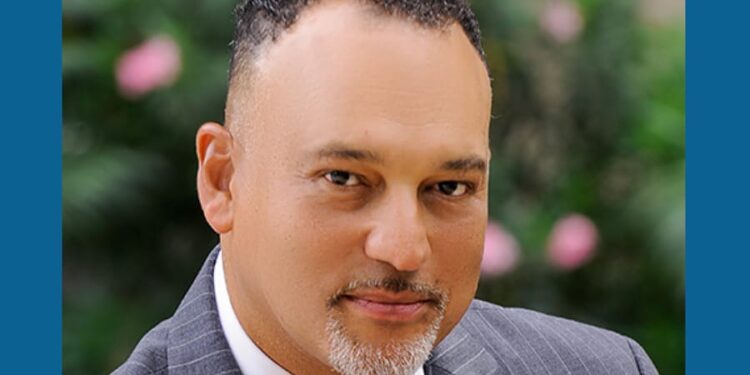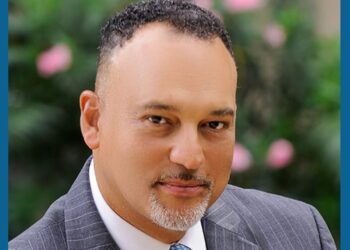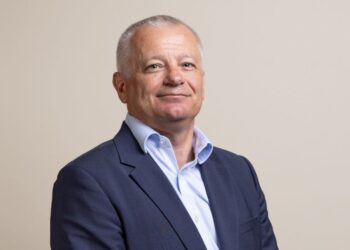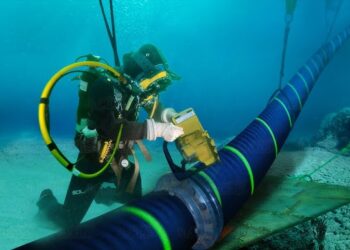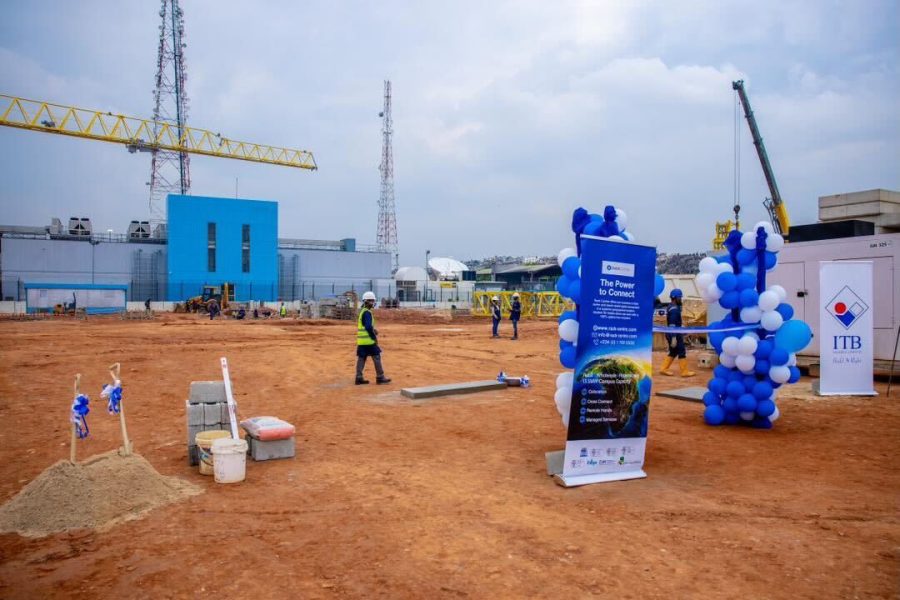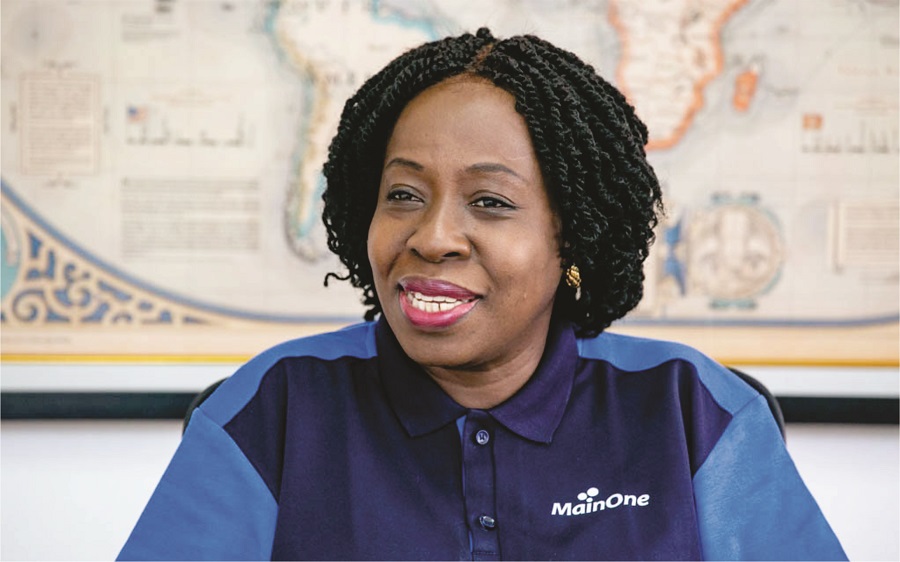Despite the unresolved issue of power that could be a major setback for this type of business, Nigeria has in recent years witnessed a flurry of activities in the data centre space. Different companies, mostly foreign, have announced commitments to build data centre facilities in the country while a number of them are already in operation.
In this interview with Nairametrics, the Chief Executive Officer of Open Access Data Centers (OADC), Dr. Ayotunde Coker delves into the economy of this business, its expected impacts on the Nigerian economy and why investors are interested in setting up such facilities in in the country.
Coker also speaks on the strategic shift towards local data hosting, spurred by the availability of hyperscale data centres and the increasing enforcement of data sovereignty laws. This shift is expected to bring back data workloads to Africa from Europe, a move also motivated by the limited space and resources in European data centres. Excerpts:
Nairametrics: In recent times, there have been a lot of investments in data centers in Nigeria. We’ve seen different companies building data centers in the country, and the latest of that is Airtel Africa, which announced the groundbreaking of its data center to be built in Lagos. What do you think is driving these data center interests in Nigeria?
Ayotunde Coker: Well, it shows that Nigeria has a good geophysical location coupled with scale. Nigeria has half the latency between South Africa and Europe, and the country has a 220 million population. Lagos alone has about 23 million population, and Lagos itself is sort of the fifth-largest economy in Africa.
The content we produce is significant. We have an increasing broadband penetration which is over 40% now according to NCC’s statistics.
You might think oh, some countries have 60, 70%, but over 40% is a lot, that’s about 100 million people connected to broadband. That’s a lot of consumptive capacity.
Also, we’re now seeing a significant decline in 2G connectivity, which is what the mobile operators started with. We are seeing an increase in 3G that gives some element of broadband capacity, but 4G significantly is now bringing what you’d call meaningful broadband to people, and also smartphone affordability is now becoming a key thing that is being addressed.
So, combining all of these things, consumptive capacity is significant. And if you don’t build these data centers, you won’t take advantage of it, I mean the right type of data centers.
So, we are starting to see quite a few of these right types of data centers being built.
Nairametrics: Can you put some value to what has been invested in data centers in Nigeria and what is likely to come based on the announcements made so far?
Ayotunde Coker: Oh, it keeps growing because, you know, if you look at Rack Centre, right now, it’s 1.5 megawatts of IT load. And it’s building 12 megawatts, right? Typically, in a rough estimate, you can go with plus or minus, you can minus some percentage from it, but you can go upwards of many percentages from $10 million per megawatt. So, it’s a significant amount of investment.
And also when you’re building out to capacity, there’s a lot of operational sort of costs that you also have to incur. So, you know, that’s a reference point. MainOne has also grown to about the same point. It’s about 2 megawatts to 2.5 megawatts before putting together the expansion. So do the math again, tens of millions.
And then suddenly, we’re now having the hyperscales coming. Rack Centre is building I think about 12 megawatts. At OADC, we are building 24 megawatts in two stages of 12 megawatts, two buildings of 12 each. Airtel has now announced its own. Digital Realty has also announced its intent for a 10-megawatt capacity, African Data Centre as well.
So, if you total that up, immediately you have tens of millions coming in. And then now we have Rack Centre 12, we are 24, that’s 36. Then you’ve got approximately another 15, that’s about 50 megawatts of capacity plus Digital Realty’s 10 megawatts, making 60 megawatts of capacity.
If you look at it as $10 million roughly per megawatt, that is $600 million, that would have come in by the time these facilities come into play fully over the next 18 to 36 months.
That gives you a view of the potential of the investments that are coming into Lagos actually because these data centers are in Lagos.
Now there’s another statistic, research has shown that for every $10 million you put into data centers, the actual systemic benefit in the environment could be anything 50 times to 100 times.
Why? First of all, you pay for expensive professional services to do your design and all of that stuff. And then when you do that, you build so you have building companies that have contracts, and that feeds into people’s employment and all of that.
You buy a lot of your mechanical and electrical from companies that would employ people even if you employ them, they would employ people.
And then you go live and you start operating, which means you’re connected to the power company and you are paying. People work for the power company, they’ll get the benefit of that because they’re growing.
You have all your operational support staff well-paid people, middle class, and highly educated. And then you have your security staff and so on. So you can see where that sort of 50 to 100-fold comes from.
Now if you say there’s $100 million being spent on a data center, say for 10 megawatts, that means you can get a billion-dollar impact on the economy. So, you can imagine the impact many data centers have on the Nigerian economy.
You know, data centers underpin the digital world, the networks are sitting in a data center. The assets that provide the computing sit in a data center on top of the network. And then this builds fiber up to the point of use, or connectivity, and then drives the GDP growth. So it’s very, very systemic.
Nairametrics: It is good to know that we have these data centers in Nigeria and more are still coming. But there are still many Nigerian businesses and even government agencies hosting their data abroad despite the presence of data centers in the country. Do you see this changing anytime soon?
Ayotunde Coker: Yes, once hyperscale data centers become available, those cloud companies will come with their equipment into Nigeria. If we didn’t have the scale of the capacity, they wouldn’t come. Once you have the mega-scale, then you start to see the shift in capacity that is coming back over here.
Also, it’s just a natural thing, because latency is a real problem. And it’s what happens when the data is held in a location far away. You always have milliseconds and so on latency. And you know, people do complain about that, that my applications are in the cloud and I have some latency because that cloud is sitting somewhere in Europe.
So, as that capacity becomes available here, that cloud workload will come to Africa. Now, there is, of course, data sovereignty that is increasingly being enforced.
It’s not just a matter of black and white, there are data classifications or what you would have that has to be local, and those are being increasingly enforced. We have local cloud providers that also provide cloud hosting here locally, so you will find this mix of international cloud and local hosting coming back down over here.
In addition, there’s something I’ve been asserting and I believe will come true, and I kind of hope that the way all the AI stuff is going on right now, they will need space for the workload. There isn’t much space available in Europe. There are issues with power availability, they have issues with planning permission. They’re having to make very, very special concessions to grow.
But that means they have to start to build more data centers and it takes time. What are they going to do? I call it capacity substitution. You take what’s for Africa that’s running in Europe you take it back to Africa since the same facilities are available in Africa to create space for AI in Europe. So, there’s a natural push for Nigeria’s data to come back to Nigeria or Africa’s data to come back to Africa for this practical reason. That’s my logic.
Nairametrics: Operating a data center is not an easy task, especially in this type of environment. What can you say is your biggest operating challenge in Nigeria and how have you been able to overcome it as a company?
Ayotunde Coker: The challenges are there, you deal with them. You overcome some and you manage some. Data centers are complicated things to run, you have to maintain 100% uptime. So, we’ve started with making sure we have 100% power. There are ways to do it.
You know, we’ve had it set up to have 100% uptime for many years. You just have to engineer your power accordingly with your mix of whether it’s utility power, IPP, or generator, you have to make sure you secure your 100% power availability.
And also, you know, maintaining the mechanical and electrical equipment, that feeds power to the racks and the devices you have within the data centers, and the whole sort of operational process has to be precise for you to meet the levels of reliability uptime and client service. So, it’s a complicated mesh of operational things that one would have to deal with.
But the key thing is, this is where the core competency comes in in terms of how to address these and run the complicated environments. And those are key issues.
Now, getting the right talent is also an issue. But you have to also make sure you invest in bringing in the good strong young talent that we have plus creating stronger, more experienced people. It’s the reality of the ‘japa’ that people talk about. What we have to do is to make sure that we have a pool of talents as a constant effort to maturity. As a leader, that’s a leadership challenge.
Then there is the issue of having access to the right kind of capital. You know, people will add a sort of African risk factor into the cost of funds. It takes time to get the right kind of capital and also, you have to have the right project delivery skill set.
Nairametrics: Now, when it comes to hosting data, the issue of data has become a major consideration for all players as countries are now taking this seriously with different regulations aimed at protecting the data of their citizens. How are you navigating this terrain?
Ayotunde Coker: I think I have been increasingly quite clear and vocal about this as a kind of a leading voice on this in Africa. I chair the African Data Centre Association, and we’ve got a move in this direction.
I believe that in Africa, we have country-by-country data protection laws. The NDPR in Nigeria, South Africa has its own, and Egypt has its own. It’s actually not that prevalent across Africa. Many countries aren’t as sophisticated as Nigeria has had. NDPR was done a few years ago, and it is a solid framework for data protection.
So, what I say is why don’t we, just as we have the Africa Continental Free Trade Agreement, have a Pan-African data protection framework? AfCFTA took some time, to succeed you need an Africa payments framework capability that sits in data centers. You hold payment information that may well be crossing borders. So, you need to think about that.
So, for AfCFTA to succeed, we need a Pan-African data protection law. Now, what does that mean? It means, therefore, you can host data anywhere in Africa and deliver it anywhere in Africa, and it’s okay. As we build all these data centers, we can serve Ghana, Cameroon, and everywhere around us.
Nairametrics: Tell us a bit about Open Access Data Centre and your mission in Nigeria.
Ayotunde Coker: Okay, Open Access Data Centre is a company owned by WIOCC group. WIOCC stands for West Indian Ocean Cable Company. And WIOCC dates back to 15 years ago, it was set up as part of a consortium shareholding to build the EASSy cable, the one that’s on the East coast of Africa.
In Nigeria, we have this proposition that we’ll call converged, open digital infrastructure, which means we bring together open access carrier-neutral data centers, together with our Open Access wholesale connectivity that allows us to bring together a unique value proposition to the country and our clients.
We have, of course, the Google Equiano cable landing Open Access Data Center building in Lekki and we already have a good range of blue-chip international clients. And also we’ve grown very, very quickly in that short period to have other companies coming to us for interconnection.
So for our data center now we have completed the design and architectural work and everything for its expansion. So, we have a phase two expansion now that is started. And that’ll grow to 24 megawatts. There’s sort of four hectares of land that we have in Lekki.
Two is being used right now for the data centre. And the other two hectares are being used for a range of solutions, one of which includes solar energy for the data centre.
In Nigeria, we intend to also build out data centres at key points across the country and you’ll see those announcements starting to come out as we implement that.
And of course, as we also do elsewhere in South Africa, we’ve built out our international long-distance networks. And we now bring that unique combination of open data centres and open connectivity to Nigeria as well.
We’re changing the game. You know, we’re making it possible for companies that provide a range of solutions to ride on our networks to deliver their unique value proposition to their clients.
We have a vibrant interconnect location providing peering and interconnection that’s growing significantly at quite a pace within the data centre.
And, you know, we’ve got a good range of clients within our data centres. Now, we’re going to be expanding across the rest of West Africa and also into some other locations across Africa.
Nairametrics: What is the nexus between data centres and fiber cable landing?
Ayotunde Coker: Well, the cables have to land in a data centre somewhere so that they can get the connectivity from capacity into the cable landing station. For us, we’ve built a significant data centre, the point of landing for Google Equiano.
So, there’s a good interplay between data centres and cables. And you know if you have the standard capacity with no connectivity, it’s not good for data centers.
Data centres need lots of significant connectivity and interconnectivity. And that’s what makes what I described as carrier-neutral data centres so compelling.
One other thing in terms of what we have in Nigeria is that with WIOCC connectivity, we connect every single data center around Lagos and every single cable landing station.
So it means, therefore, that those cable landing stations have access to the capacity to be provided. The clients that sit in the data center are the ones that consume connectivity.
So there’s a nice symbiotic relationship and in the locale of Lagos now we have quite a few data centers being built to hyperscale. Having the connectivity level we have with an undersea cable is a good thing. Because you know, it means that you can push capacity out and bring capacity in at scale.

